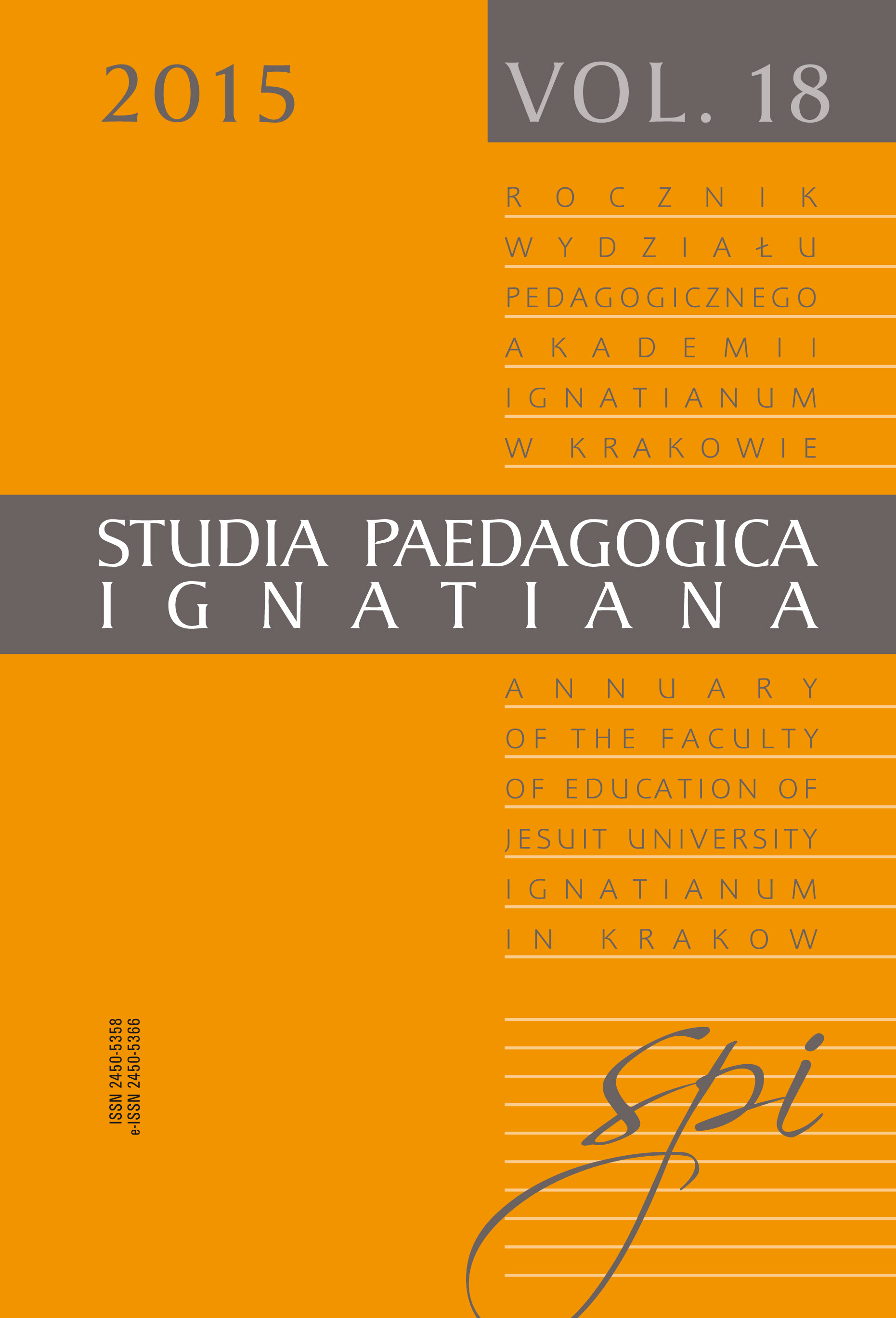The Hermeneutic Priority of the Question: Cultivating the Hermeneutic Ear
The Hermeneutic Priority of the Question: Cultivating the Hermeneutic Ear
Author(s): Małgorzata PrzanowskaSubject(s): Philosophy, Social Sciences, Education
Published by: Uniwersytet Ignatianum w Krakowie
Keywords: question; ways of listening; cultivation; taste; hermeneutics; translation;reading;
Summary/Abstract: In the text the hermeneutics of listening (which can be also called “the psachno-acouological hermeneutics”) has been outlined in the context of the hermeneutic priority of the question. The author focuses on different ways of listening: unwitting listening, witting listening, interpretative listening, breathing listening, listening within action. The latter aspect of listening is directly connected with the ethics of taste, which is phronetic. The inner ear brings out what is right in the situation, so the author states: there is no phronesis without akuological sinesis. The enumeration of the ways of listening is to present, on the one hand, the variety of listening, and on the other hand, some paradoxes and difficulties in describing the complexity of “the acouological”. The complexity does not vanish the main conviction that listening is the spirit of every formative experience and it enables to think of the educational liberation as of a deep-rooted liberation. The cultivation of the hermeneutic ear happens in the process of translation/reading as experiencing something different and differently. It needs the willingness to read in a special way: slowly and freely in order to reveal some sense in the three-dimensional experience of co-utterence, translation, and a creative expression of our “inner word”. In the article an anthropological thesis is pointed out as well: a person is a genuine openness which is actually a temporal, dynamic space for question being at the same time the space of question, thus men are able to welcome the question that comes to them like to a well-known area, like to its own “home”. If so, the human spirit is rather psachnological (or quaerological), because question is a “message” full of meaning, something that calls, touches so deeply that one feels the necessity to be in search for a respond. However each question, even the simplest one, must be heard in order to became a real question calling for an answer. The human being can therefore be named “being all ears”, or “the audible way of being” (“słuchający sposób bycia”), “a listener” or “an embodied listening”.
Journal: Studia Paedagogica Ignatiana
- Issue Year: 18/2015
- Issue No: 1
- Page Range: 59-80
- Page Count: 22
- Language: English

